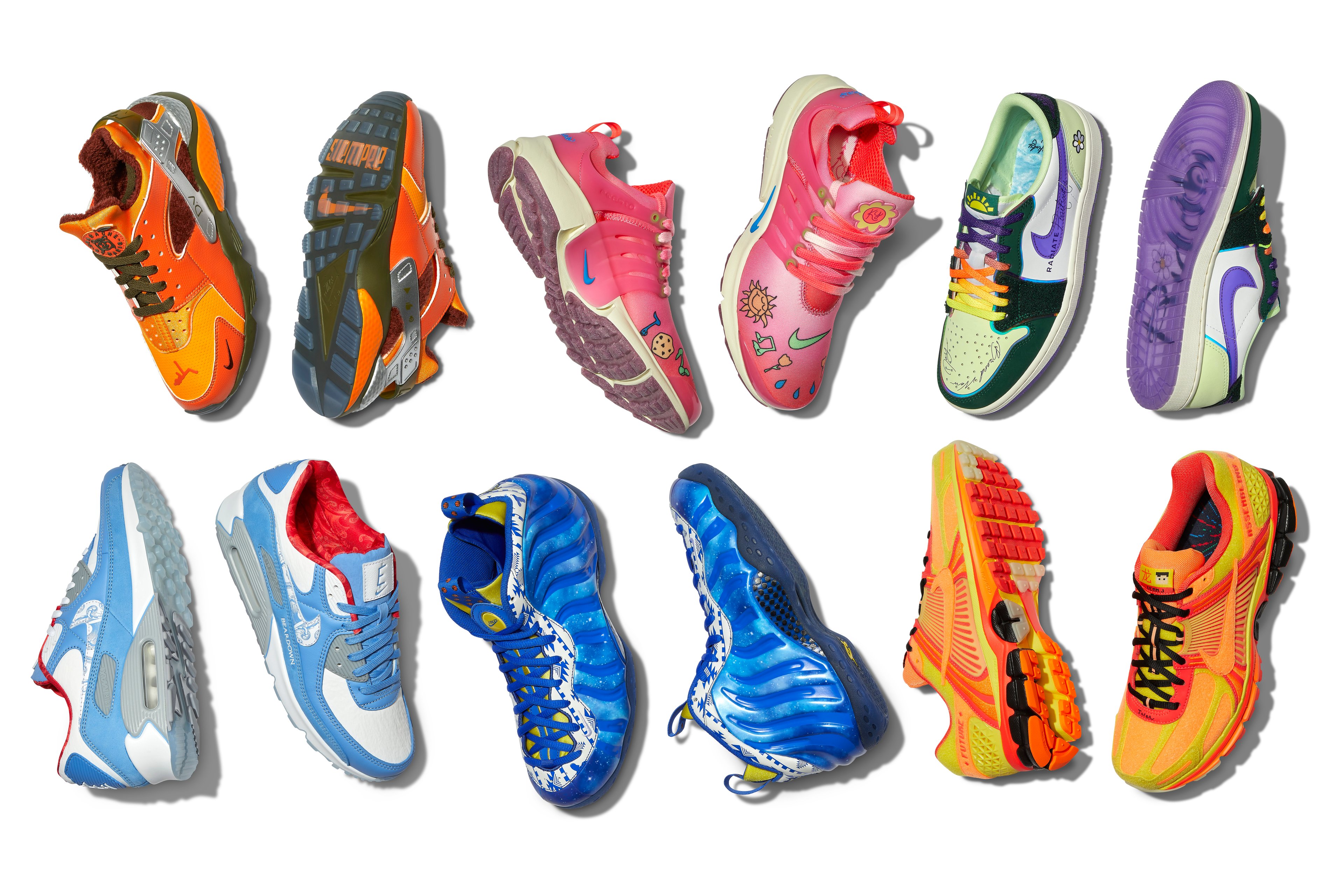Would you rather own a business selling everyday items for the global masses, or a business selling select luxury items to just the U.S. affluent demographic? That seems like an easy answer, but deciding between Nike (NKE +5.17%) stock and Restoration Hardware (RH +3.45%) stock is more complex than that.

Image source: Getty Images.
Why buy Nike?
Over the last four quarters, Nike has grown revenue by 8% and net income by 3%. Stable, steady growth from this behemoth blue-chip company has endeared it to investors. Consider that in March, at the bottom of the stock market crash, Nike stock still traded around 25 times trailing earnings. That's pricey for a clothing retailer, and it shows investors' comfort level with the company's long-term prospects even in the most uncertain of economic situations.
Part of Nike's allure is its global brand recognition; it's not just a U.S. story. In China, the company had grown revenue at a double-digit growth rate for 22 consecutive quarters. That growth streak was snapped by COVID-19, as Nike closed most of its retail locations in the country. Stores eventually closed around the world, making the upcoming fourth quarter's prospects look bleak. The Q4 report is scheduled for June 25.
However, Nike didn't take the coronavirus challenge lying down. It quickly moved to make its fitness app content free, leading to strong user engagement. In the third quarter, weekly active users in China grew 80% just from the second quarter. In its Q3 earnings call, Nike's management attributed its 30% digital sales growth to this strong fitness app engagement.
Digital direct-to-consumer sales is where Nike is headed. Recall that prior to the coronavirus, it stopped selling on Amazon. Developing a direct customer relationship has multiple benefits, including improved cost structure and consumer insights. And even in this challenging retail environment, Nike's amazingly still making progress toward its goal, which is a reason to still love the stock.

Image source: RH.
Why buy RH?
In fiscal 2019, RH generated $2.6 billion in revenue. However, it's targeting $20 billion in annual revenue long term. That's nearly eight times the annual revenue it's generating now, firmly placing RH in the growth-stock category. It's inconceivable for Nike to grow its $42 billion top line that much.
RH sees a "clear path" to $5 billion in annual U.S. revenue -- double its current level. This will come from new furniture galleries, but also as the company branches out into food service and hotels. Its first guesthouse is expected to open this year. It even offers a yacht experience for affluent individuals to charter a cruise around the Caribbean.
However, the bulk of RH's revenue growth will come from international markets. The company sees a highly fragmented luxury furniture market in Europe, and the management team has been scoping out sites to open future RH locations.
It's not growth at all costs for RH; it's aggressively pursuing operating-margin growth. In 2017, its operating margin was 7%. In 2019, it had improved to 14.3%. In the next couple of years it's targeting a 20% operating margin, and even expects margin expansion in 2020 despite the coronavirus. In other words, while it has a high revenue growth target, profitability should grow even faster. That's a compelling reason to like RH stock.
There's also a slight chance the COVID-19 pandemic nudged trends in RH's favor. Consider the number of prominent businesses allowing employees to work remotely. Real estate company Zillow recently performed a survey of remote workers and found 66% would consider moving if their flexible work situation was permanent. It's why Zillow predicts a suburban housing boom. In that scenario, RH's luxury furnishings could see increased demand.

Image source: Getty Images.
The better buy
If you're just looking for a safe place to park some cash, Nike is a good option. Its products don't fall out of favor during tough economic times, and its management has a long track record of growth. Furthermore, it pays a modest dividend yielding about 1%, which is better than nothing.
However, I believe RH has far more upside than Nike in the long run. That potential reward does come with a caveat. Selling luxury items from brick-and-mortar locations is a very contrarian business model. It's worked out so far, but RH really can't pivot to a different model at this point in the game if affluent-consumer trends change. So there is risk. Even still, I think RH is a long-term buy and hold.







